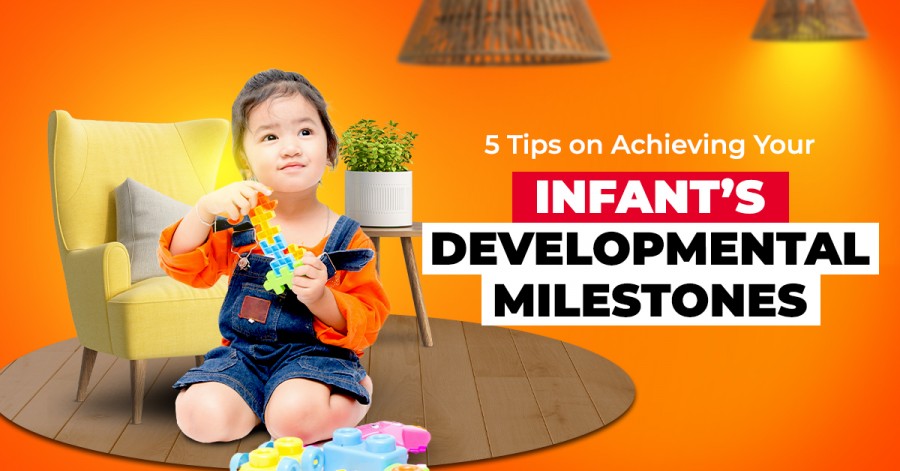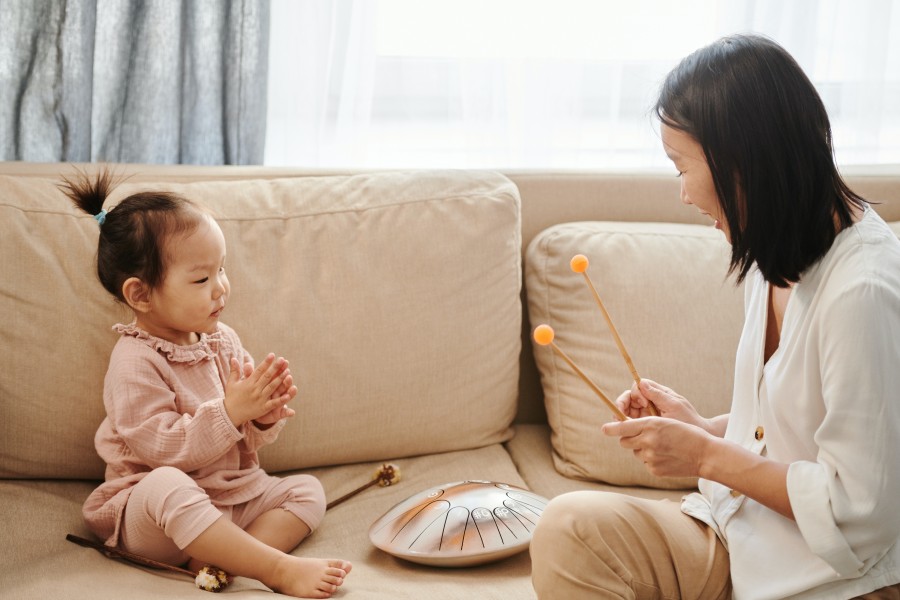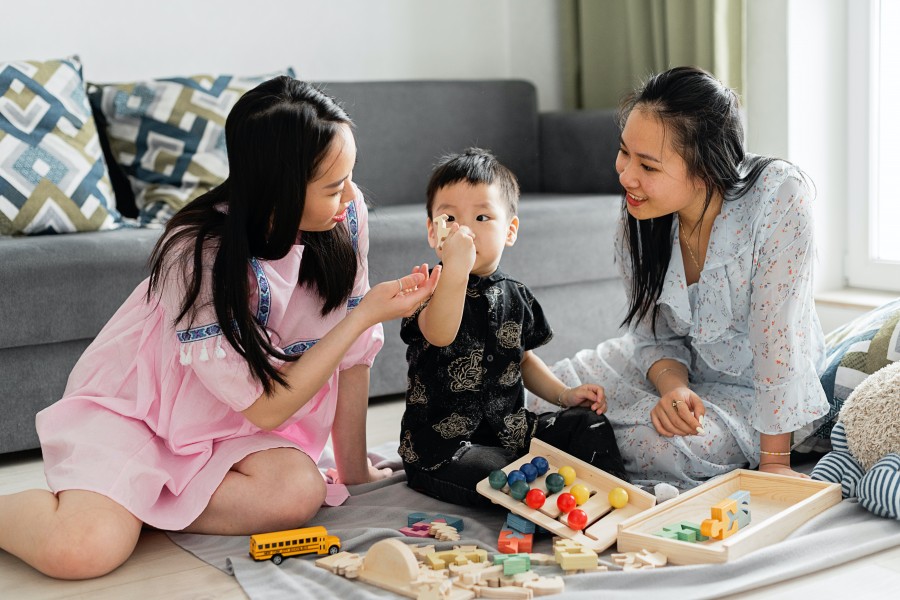5 Tips on Achieving Your Infant’s Developmental Milestones
Published 03 November 2022 at 20:14
Tickikids Blog Singapore > Childhood reading > 5 Tips on Achieving Your Infant’s Developmental Milestones

From birth until they reach 18 years old, your child undergoes a total of five developmental stages. Each stage has four areas—physical, cognitive, language, and social-emotional development—and each area has its own developmental milestones. These are like markers that indicate what and how much a child can do at a certain age.
You May Also Like: 2025 Top Preschools in Singapore
For newborns, these developmental milestones involve simple things like smiling, laughing, turning over, and sitting up. Eventually, they’ll start to master sounds and language. They’ll also start to crawl and attempt to stand. Later on, they’ll be more curious about the world around them and be able to show more emotion.
All of these can be overwhelming to a parent, especially if you’re a first-timer. It’s exciting, most definitely, but there’s also an underlying fear or anxiety. What if your child is behind on their milestones? What are their milestones in the first place?
Consulting child development experts can help you figure things out. Also, keep in mind that different children develop at their own pace. One child may start walking as soon as they turn 9 months old but won’t say their first word until they’re a year old, while another may already be babbling multiple syllables at 8 months but only be able to walk at 18 months.
Recommended for You: Top Montessori Preschools in Singapore
That said, there are some things you can do to help your child reach developmental milestones with ease and comfort. Here are some tips:

Image Credit: Pexels
Talk and Read to Your Baby
Talking to your baby, even if they can’t understand you yet, helps them become more familiar with your voice. In turn, this helps with the association that you’re someone safe and reliable. For mothers in particular, your voice is mostly what your baby hears while they’re in your tummy. Thus, talking to your baby once they’re exposed to the world helps them feel more secure and calm.
Aside from the emotional benefits, talking to your baby also means you can get them started early on imitating sounds. When they’re babbling, respond to them using full words and sentences. This can contribute to the development of their speaking skills.
Play Some Music and Sing to Your Baby
Over the years, many studies have shown that exposing your child to music as soon as possible can help with brain development. Specifically, the changing tones of songs helps babies recognize patterns. Music can help babies improve their focus and memory as they grow older.
When you play music and sing to your child, they’ll learn early on how to use different tones to communicate their needs. Obviously, they can’t say anything just yet at this age. However, after a few days, you can memorise your child’s unique cues and cater to their needs more efficiently.

Image Credit: Pexels
You May Also Like: Top Child Care & Infant Care in Singapore
Play Stimulating Games
Once your child starts to interact, start playing simple but stimulating games with them. A great example is peek-a-boo, which stimulates your baby’s senses and helps strengthen visual tracking (the ability to stay focused on an object as it moves). In addition, peek-a-boo can facilitate the mastery of object permanence or the understanding that something or someone still exists even if they can’t be seen.
Finally, this simple game can provide a positive bonding experience with your child. Around 4 months old, your baby will also start to develop the ability to grasp objects. Give them toys like rattles or something similar with a handle (perhaps a lightweight maraca?) so that they can practise their grip. To exercise their arms and shoulders, don’t hand over the toys to your baby directly. Instead, hold the toys above them so they can reach up and forward to grab them.
You Might Find Interesting: How to Identify and Nurture Kids' Talents
Help Them Identify Things and People
By their 6th to 9th month, your baby will be able to remember or recognise familiar names and faces.
Reinforce this developmental milestone by reading picture books with them, so that they can identify or name objects. Meanwhile, continue talking to and singing with your child, so they can continue to learn sounds and interpret tones.
You should also start introducing more people to them, such as their aunts, uncles, cousins or even neighbours you trust so they can begin to socialise. If possible, do this at home so your baby feels more safe and comfortable.
Continue Your Adventure: Enrichment Classes for Babies and Toddlers in Singapore
Create a Safe Environment for Play
Finally, make sure that your child has a safe space where they can play and interact with their environment. Do what’s universally called “baby proofing” in your home so your child can crawl and toddle around with more freedom. As much as possible, play with them as well. Spending some quality time with your baby can help them feel more confident and secure.
With regard to toys, choose those that promote coordination like stacking blocks or rings on a stick. Let them practise filling and dumping as well, say with a bucket of toys. You should also look for toys that feature different shapes and textures, and/or produce different sounds for sensory development.
Last but certainly not least, equip yourself with infinite patience. Sometimes, babies do take their time in learning and absorbing everything that’s going on around them. Just stay by their side as they go along, and keep in mind that, as mentioned, babies develop at their own pace. If you’re truly worried, consult your paediatrician and a child development professional.